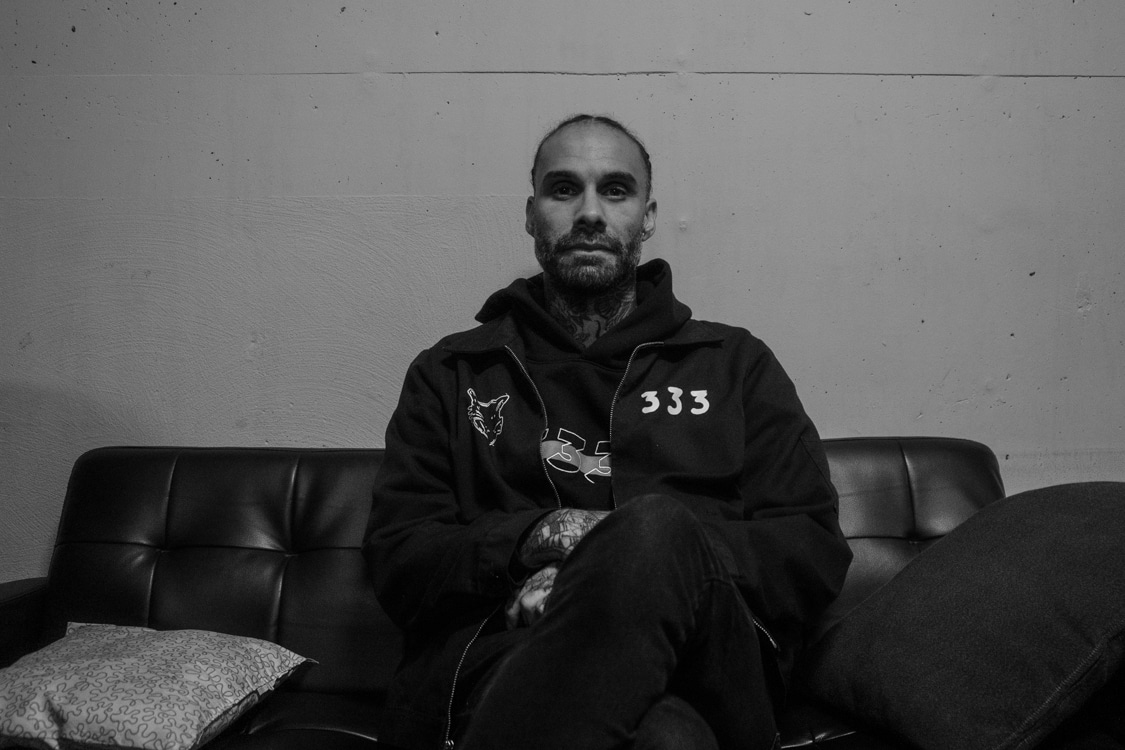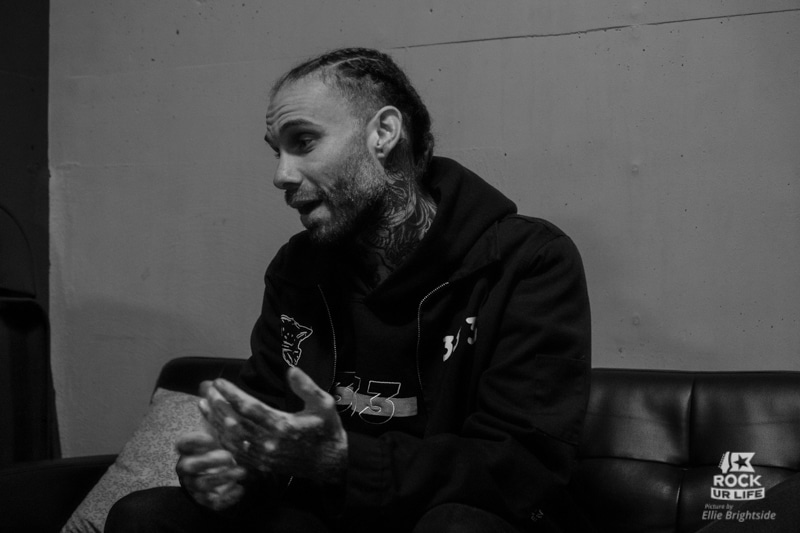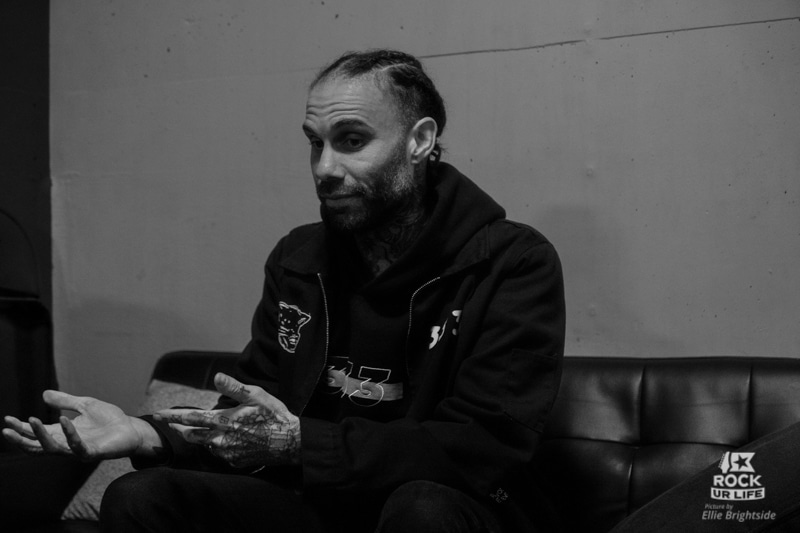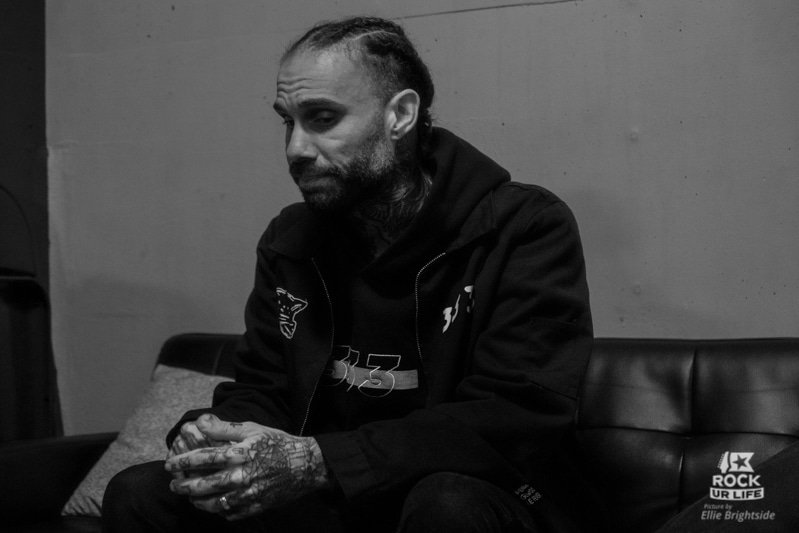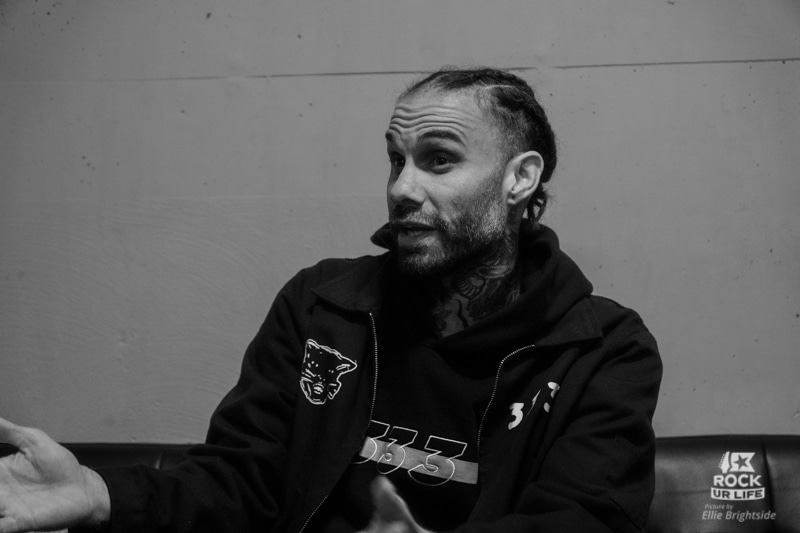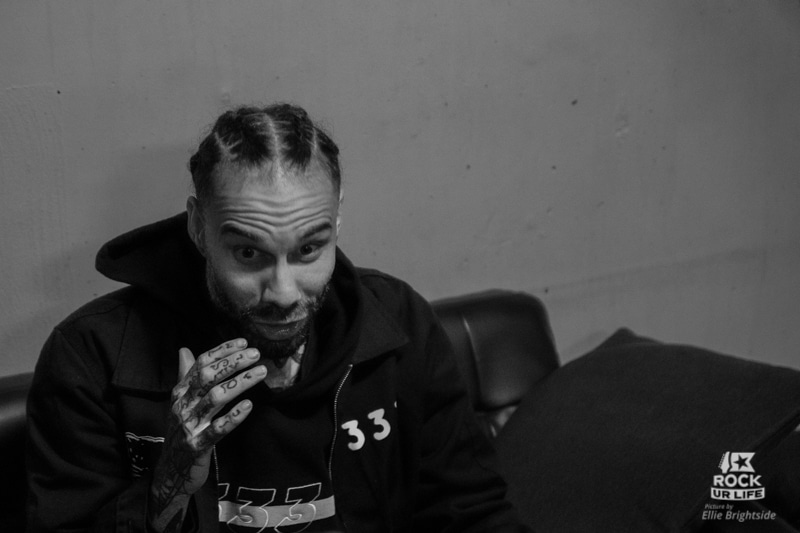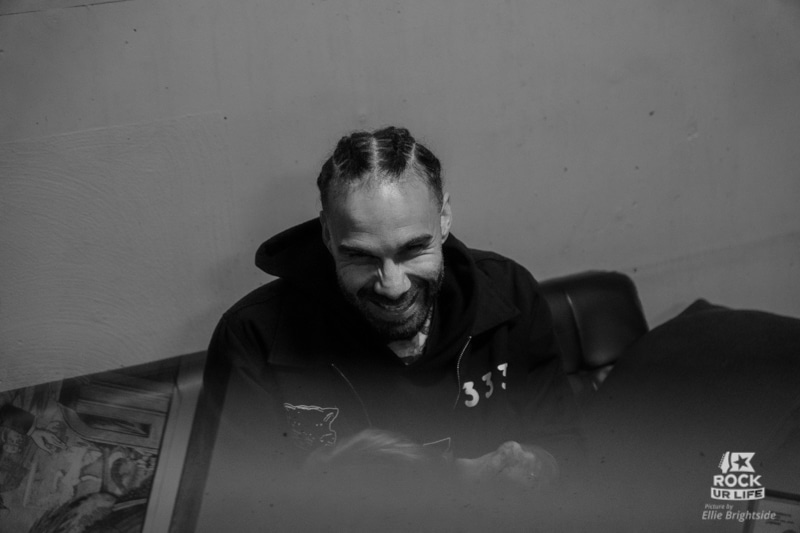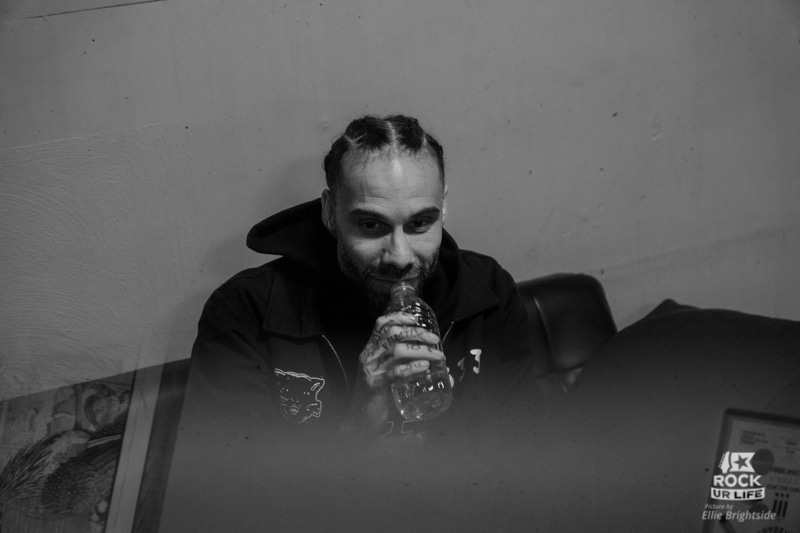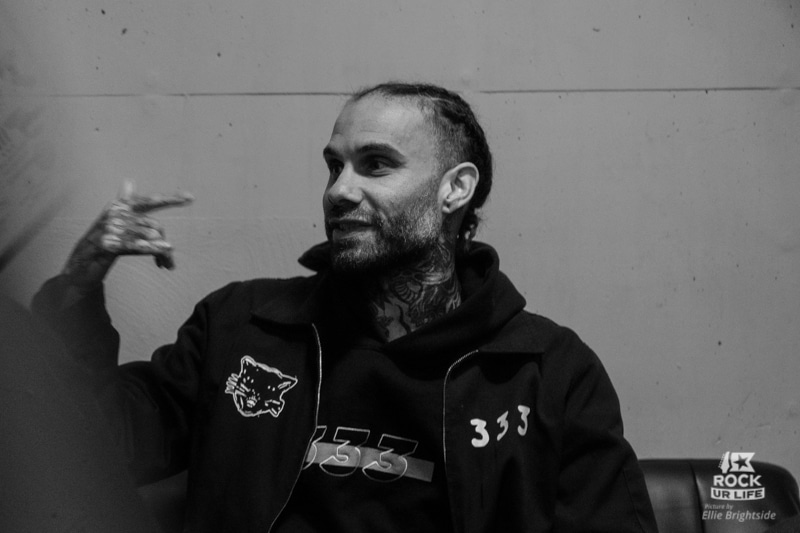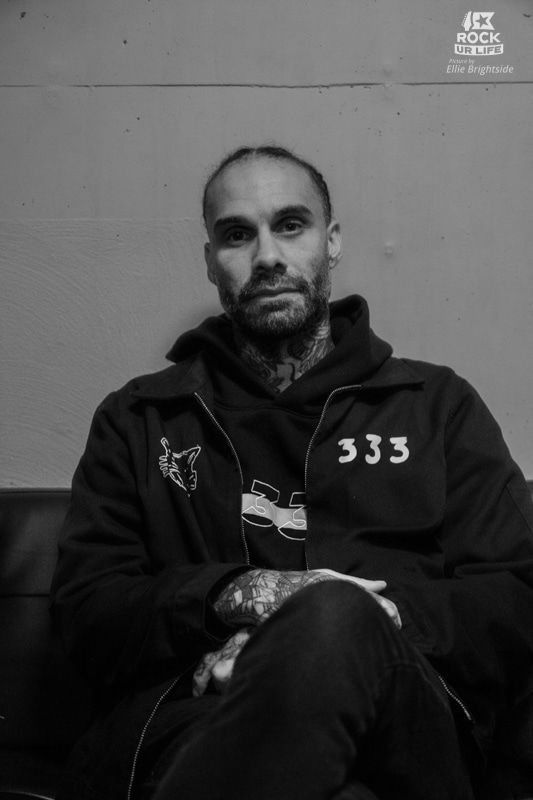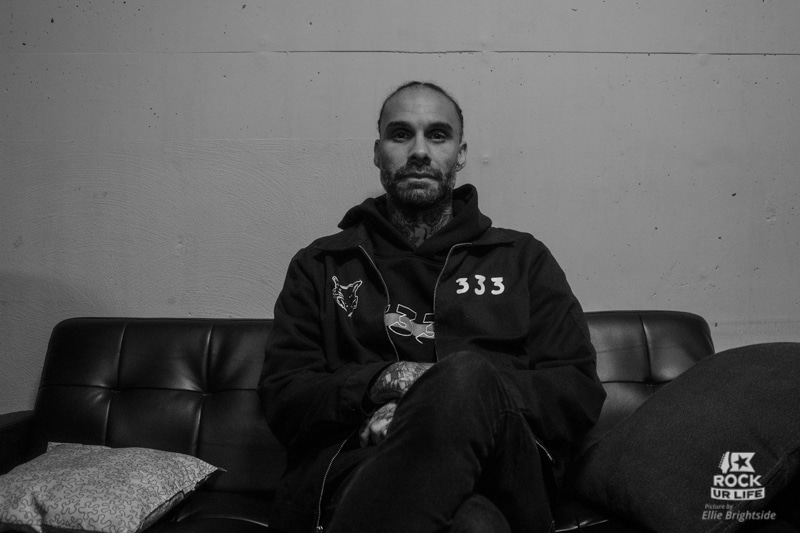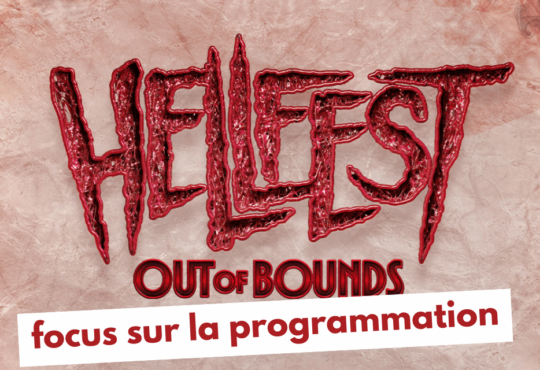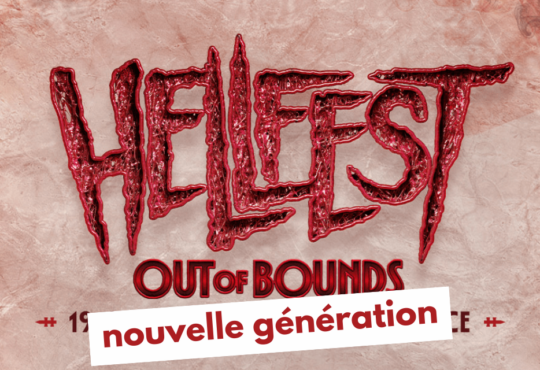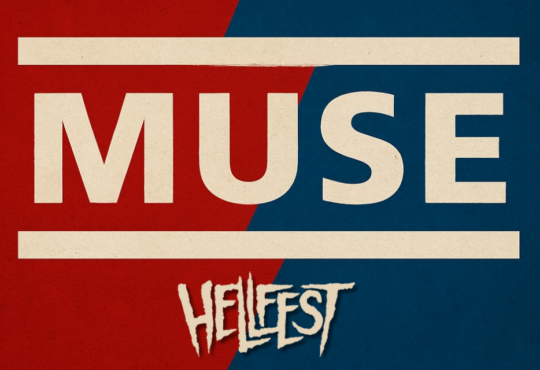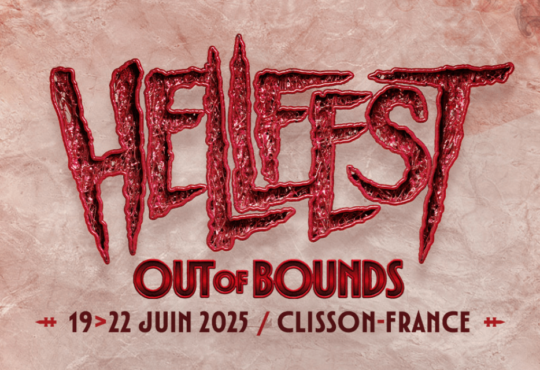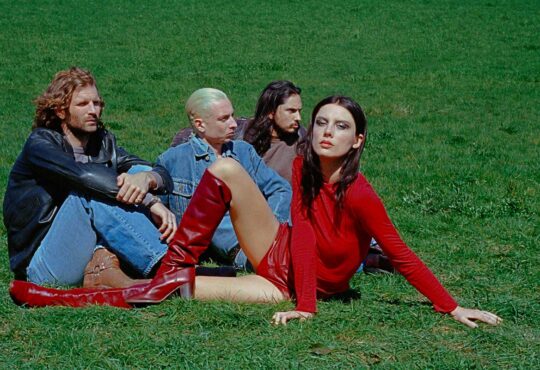FEVER 333 was back in France to promote their debut album “STRENGTH IN NUMB333RS“. The frontman Jason Aalon Butler sat down with RockUrLife to discuss his political views and the purpose of the band.
Let’s start with some reaction to the announcement made by Rage Against The Machine. How do you feel about it?
Jason Aalon Butler (vocals): I’m so hyped! I never got to see them because I couldn’t afford the ticket. So now I’ve booked my hotel and my ticket for the show in California. I’m gonna go to Arizona and Texas as well.
Do you think their intention is to contribute to take Trump out?
Jason: I’m quite sure it’s part of the reason behind it. We are in a really really turbulent time as a nation. Mostly what Trump does is diametric to what that band believes. I think they understand that the effects of that man are really dire to the entire population. They can offer a large dose of rage. No pun intended. (laughs)
What about you? Will you be involved in the coming election?
Jason: Oh yeah. I’m currently trying to align everything I do with the election. I try to focus on issues I can talk about globally. 2020 is going to be a huge year with everything going on recently. The riots in Chile, Brexit, The American elections, or what happened in New Zealand. There’s so much happening right now. I think the pendulum needs to swing over 2020 and it will. And we will have to have some answers politically, intellectually, societally and artistically of course.
Do you have a strategic plan or something?
Jason: I do. I’m just working on it. Right now, I try to see where we fit in politically. 2020 in America will be so political. So, how do we fit in? How do we encourage people to utilize the power of their voice? We want to make them safe and represented and utilize their power to whatever they want to say. I’m not saying that they have to vote the way I vote either. I’m just saying that they should vote.
Do you think you would be able to raise some awareness among youngster and encourage them to actually vote?
Jason: I think we have some sort of influence. I want to believe that we have some influence because we offer something that is authentic. We never started this band to influence in any other way than in a positive way. That’s what we achieved and in doing so we hoped to continue offering positive influence.
Since you talk about the start of the band, could you tell us a bit about the role of Travis Barker?
Jason: I was selling cookies. I was in another band and we were inactive at the time, so I was selling cookies at this selling store.
Vegan cookies, correct?
Jason: Yes, vegan cookies, vegan freaking cookies. (laughs) His daughter came, she knew my band, but I didn’t who she was. She went home, showed Travis a video of the band. He was like: “this guy is selling cookies?” He came to the store, we talked, and we realize we had a mutual friend: John Feldman. He said he wanted to do some music. I didn’t know if he was going to go through with this because he does so many projects. A week after that I got a call and a week after that we got together, and we started writing the EP. Like Travis, John and me. I called the boys and we put the band together. They’re like the fourth and fifth member of the band. We produce and write everything together. They’ve been so supportive and believe in what we do. We’re just very lucky to have their support. We make sure that we do everything we can to honor their level of support.
We’ve been touring indefinitely and everything we do is honest and authentic.
It’s a nice story.
Jason: It’s crazy, really crazy.
Travis is someone who always seemed to love crossing genres. He played with Puff Daddy, more recently he did a featuring with YUNGBLUD and Machine Gun Kelly.
Jason: Yes, he is so inspiring and so good at crossing genre. He’s so good at keeping his vibe and putting in a pop or hip hop or rock or punk or electronic song. He’s such an inspiration for me and the guys. My first loves were hip hop and R’n’B then I got to punk rock music. So, seeing him cross over so tastefully just shows you it can be done.
It’s also a new trend. Artists like Post Malone do not hesitate to cross over rock, rap or hip hop. Travis Scott dress up with heavy metal clothes.
Jason: Yeah, like AC/DC shirts and stuff.
It seems like the new generation care less about labels and more about what they like.
Jason: I agree and I love that. As long as you honor and respect the cultures that you are employing in your music and art. I want people to understand where it’s coming from and why we’re using it. If we use any genre that may seem outside of rock n roll or guitar oriented, it’s because we know it and love it. We listen to so many types of music, I know lots of people say that, but we genuinely adore it. We can be at a Massive Attack show, then be at The Attics show or Bring Me or Mos Def. We genuinely love the genre that we employ.
The first time we’ve listened to your music we thought that it was the perfect mash up between Rage Against The Machine and Linkin Park. But then, there were traces of various influences like Kanye West for example.
Jason: Thank you, thank you.
The lyrics are very political and quite harsh sometimes. However, in some songs like “THE INNOCENT” the chorus is really cheesy.
Jason: Yeah that’s my thing! I grew up loving pop music. I love Michael Jackson, James Brown, Bruno Mars. I love things like that. I just want to find a way for people to sing something that is important. Does that make sense? Cause people love pop music and I’m not mad at it. For me there is some worth in music that doesn’t have a message. If you just want to let go, and escape, and dance, it doesn’t matter what the chorus say. But for me, I want to engage people with something catchy. But then, when they look back at what they’ve been singing it’s something deeper. That’s what I’ve been trying to do with this project. Find a catchy melody and find lyrics that would make people say: “oh shit, that’s what I’ve been singing about”.
In your lyrics you relate your personal experience, it’s even truer with “INGLEWOOD/3”. Could you tell us about the song?
Jason: That one is road map of my life. I’m really trying to explain the things I do. Where it comes from, why I do what I do. It’s not a ruse or just an act. This is how I grew up. So, when you listen to this you can tell that the things I say come from personal experience and facts. Not just some shit I thought it as cool to say.
It’s interesting for your audience. It’s a way to get to know you, to understand what you’ve been through and your references. There are some famous names that pop up quite a lot like Martin Luther King, Rodney King and Malcolm X. What do you draw from their lives and teachings?
Jason: I’m not as political as Malcolm X but I do believe that there is a need for militants to make a change sometimes. Martin Luther King and Malcolm X together just ushered this new way of understanding Black culture equality and freedom. When talking about them I’m un abbatial. There are some teachings in Malcolm X that I believe in and some that I don’t. With Gandhi there are lots of things that I like and there are other things that I don’t use in my life. Rodney King, he represents the frustration that Black culture was feeling at that time in the place where I come from. It’s very specific, but in a way, it represents a bigger idea. It set off the riots in 1992 in L.A.. This man gets beaten on a camera and people get acquitted for that. It’s fucked up, no question. But below the surface there was frustration, relegation, subjugation, racism. All these different structural disadvantages that Black culture was feeling for so long. It was only a matter of time before it was gonna boil open. The moment just snaps it. Like in France, the oil price went up, but it wasn’t just the oil price. It was all the other things and this president right leaning. It was all the frustration French people were having and oil was just a spark. Rodney King was like that for me.
When one reads about the band, one of the first thing that always comes out is the word “biracial”. For us, French it’s something unusual.
Jason: I notice that. In America we are labeling things and people. You’re white, you’re black, you’re that. We started that shit in the 1800’s, literally so we could know who is allowed in certain areas. That’s why we started racism. Before that, there was creole and all these things. Then we started creating race and the North/East. Black people started creating wealth and starting to have power over these racists.
In America it can be hard to find your identity. For me it took me a long time to accept my blackness and having a white mother. Because of the structures in America, because of labels, because of race. And it’s not just in America, it’s in other part of the world like in Britain. We share lots of things with Britain. In the album we try to create a free space for people to accept their identity. I know a French girl, black dad, white mom and she’s always saying: “I’m just French”. That’s really cool.
The word “race” is something that you use a lot in the US, but we do not really use it in France. Like there is only one race, the human race, and it’s weird for us to always make a distinction based on the color of your skin.
Jason: It’s very interesting culturally. In America we have the race and on top of that with have the religions. You have the Muslim, it’s complicated. Then you have the Mexicans, who used to own the areas we’re living on. They are actually aiding in our wealth and economy, but people don’t see that. So, they create a fear of another culture or race. They’re saying that they’re gonna destroy our America. But America has been built by a variety of cultures and people.
It’s also a culture built on fear.
Jason: Exactly. It’s tragically fascinating, for sure.
Another issue you’re against is gentrification.
Jason: Yes. I’m a businessman myself. My wife and I are entrepreneurs. I do believe that you can serve communities. One example I have is that I live in a neighborhood with mostly Mexican and Latin people. They come to a place called panaderia where you can buy bread, pastries and Mexican candies for like 2 dollars. This place comes in and they do a slice of bread with avocado for 9 dollars. That’s not servicing the community. That’s pushing people away out of this community by way of your product and you’re offering nothing. Gentrification is almost like colonizing. You take over space without offering nothing to the local people. This leads to frustration and can lead to violence. These are places where people build families and communities and when you displace them it’s disruptive. That’s how cultures get lost. I think you should allow space for people to exist within the thing that you’re creating or get the fuck out.
Me and my wife, we just bought 2 apartments in the area we’re living in. The people who were living there were paying extorting rent. We lower the rent, which is something that doesn’t happen in LA at all. People were like: “what are you doing?”. But the thing is that we don’t need that money. It’s not worth it. The area is not nice enough, not secure enough and I know it. I’m still making money out of it, it’s still a transaction. But I’m not making more money than I should in an ethical point of view.
So, it’s not only about words, it’s also about taking action and setting the right example.
Jason: Yes, you have to.
There will be no supporting act tonight due to ethical issues. Could you tell us a bit about the choice?
Jason: In this industry, they would tell you who to take out, where to take them out, they would build these packages together and they would give nothing to all the opening bands. This is causing stress, bands break-ups. It’s degenerative, it’s problematic for all the bands. Who is making the money? Not the bands! It’s the promotors, the agent, the labels. The bands have to pay the agent fee, management fee, label fee. The band has to pay all this money just to hope that some people notice you and come back to see your show. You have to hope and pray to god that you can become a main support act or a headliner. That is not beneficial for a band. What we’re doing is walking through the fire and hope that we can come out ok without having to drag someone along for 50 dollars a night.
We have to know what we’re worth as a headliner and maybe next year we can physically and statically show the promotor that we were able to gather 1000 people in France that night. Then we can ask for more money and give 40% of that money to a supporting band. Instead of giving them 50 euros, I want to be able to give them 1 000 euros. And we can do that because we got the concert sold out without anyone. So, nobody can tell me anything. I did it on my own and I can do whatever I want with my money.
Furthermore, when we come back with a band it will be an event. Like we spend 3 years without touring with a band, so when we do people are going to check the band out. We want to break the cycle and I think it’s beneficial for all the bands.
We walk through the fire and it was hard. Tonight, it’s sold out and that’s so cool! So now we can go and take a band with us and give them good money.
And to conclude this interview: we are “RockUrLife” so what rocks your life?
Jason: My wife and I are having another baby, they rock my life.
Website: fever333.com



